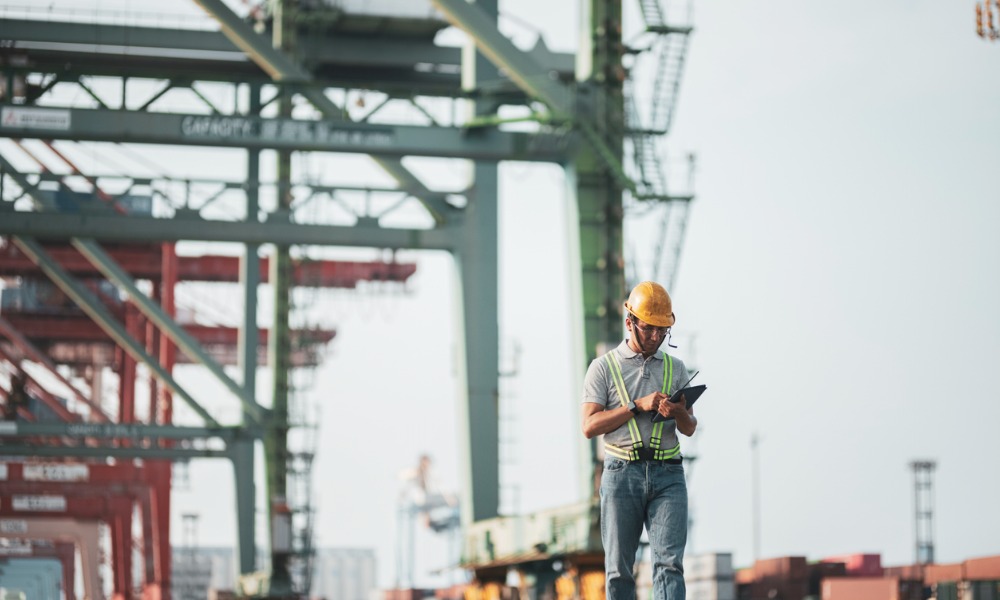
TAIC: Stevedoring industry lacks regulatory, safety management oversight

The Transport Accident Investigation Commission (TAIC) has found a lack of oversight on New Zealand's stevedoring industry in its independent review following two fatal workplace accidents in 2022.
Naveen Kozhuppakalam, chief investigator of accidents, said the stevedoring sector has issues on regulatory activity, cohesion in the industry, as well as individual employers' management of safety.
According to the chief investigator, stevedoring organisations are left to decide for themselves on how they meet safety requirements.
"They receive insufficient regulatory oversight, lack industry-wide safety standards, and lack the formal safety management oversight and monitoring required of other industries. There is minimal proactive gathering and sharing of safety information, and too few appreciate the benefits of a good safety culture," Kozhuppakalam said in a statement.
He urged regulators Maritime NZ and WorkSafe to do more in promoting safety across the sector.
"They need to take a 'just culture' approach, provide insight, promote information sharing and maturity in risk management, and encourage continuous learning," he said.
"The commission is recommending that Maritime NZ work with the stevedoring industry to develop and implement a risk management code of practice, minimum training standards, and ongoing improvements such as sharing of safety information amongst industry players."
In response to the review, Maritime New Zealand said it partially accepts two of the recommendations, and fully accept the other two.
Among the recommendations it partially accepted is the suggestion to take a "more proactive role" in driving safety on ports.
"We partially accept this recommendation, as we believe our assessments focused on critical risks on ports, with WorkSafe NZ, is proactive monitoring activity and looks at individual operators," said Maritime NZ director Kirstie Hewlett in a statement.
"We agree that there is always more opportunity to work proactively."
The designation to oversee health and safety at New Zealand ports is currently shared by Maritime NZ and WorkSafe, but the former is set to take over as sole regulator starting July 2024.
"We welcome the additional funding that comes with our designation extension from 1 July 2024, so we can carry out more proactive monitoring on ports," Hewlett said.
Part of the proactive work underway in the sector includes the creation of the Port Health and Safety Leadership Group, chaired by Maritime NZ and made up of the regulators, the Port Industry Association, unions, as well as port and stevedore chief executives.
The group earlier released an action plan that outlines actions to address the harm happening in ports, with plans underway to improve safety standards.
The review on New Zealand's stevedoring industry was ordered in 2022 by then-Transport and Workplace Safety Minister Michael Wood, following separate fatal workplace incidents involving stevedores at the Lyttelton Port and the Port of Auckland.
The employer of the stevedore in Auckland was independent stevedoring company Wallace Investments Ltd. The employer of the victim in Lyttelton was the Lyttelton Port Company Ltd.
Kozhuppakalam said both employers were weak in risk identification and mitigation, communication, and supervisory oversight.
"And while both companies relied on administrative risk controls, like rules and guidelines, to manage workplace risks, neither company knew how well workers were applying those rules," the chief investigator said.
He further pointed out the problem of employers relying too much on administrative risk controls, which he called a "struggle" to make them work.
"People become desensitised to risk, they take shortcuts or drift away from following rules, some of which are thought to be impracticable," Kozhuppakalam said.
"Administrative risk controls only work with ongoing active safety leadership, good supervision, and a culture of safe working behaviour."
The TAIC said it recommended that Wallace and Lyttelton Port Company "prioritise a review of their safety management system."
It also made a recommendation to Lyttelton to review its medical screening of stevedores to ensure it provides adequate assurance of medical fitness for their duties and responsibilities.
Lyttelton told the TAIC that it accepted both recommendations.